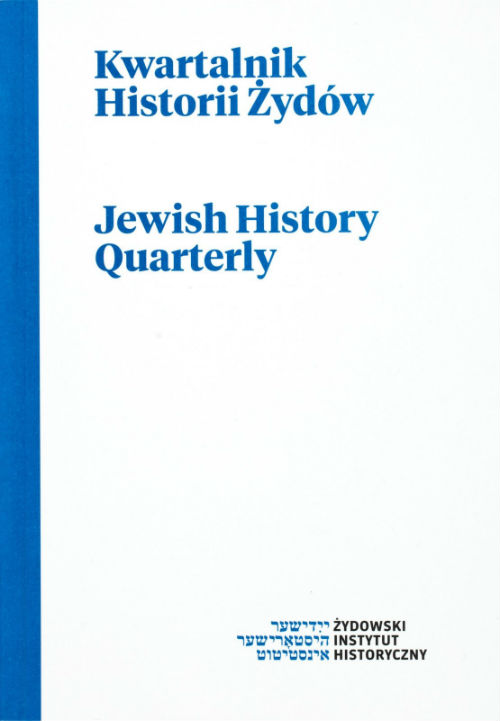Inskrypcje nagrobne na starym cmentarzu żydowskim we Wrocławiu jako źródło wiedzy o duchowości Żydów śląskich
Gravestone Inscriptions at Old Jewish Cemetery in Wrocław as a Source of Knowledge of Spiritual Life of Silesian Jews
Author(s): Agata RybińskaSubject(s): History
Published by: Żydowski Instytut Historyczny
Keywords: Breslau; Wrocław; Jewish cemetery; gravestone inscriptions; eschatology; linguistic picture of the world
Summary/Abstract: The purpose of this article is to point to the possibilities of using Jewish cemeteries and especially the gravestone inscriptions as a source of knowledge about the Jews spiritual life. In the article I looked chiefly at the inscriptions from the old Jewish cemetery at Ślężna street in Wrocław. On this basis it is possible to reconstruct the linguistic picture of the world – the manner of understanding and describing God, man, angels, earthly reality and belief in afterlife, as well as relations between people and the moral standards to be upheld. I also discussed the naming of the graves appearing in the texts, especially the names inherited from biblical tradition. The mix of languages in the inscriptions, the use of Hebrew and/or German, indicates the advancing acculturation of the Wrocław community in the 19th century. An analysis of the (opening and closing) formulas, the titles, the anthroponyms, including the names and references to the Lord and the names of the dead, as well as of the language of the laudation and lamentation, points to advancing laicization of Wrocław Jews, which is reflected in the graves. The manner of defining a state of place, especially one related to afterlife, contained in the laudations and lamentations, is the best course of knowledge among the spiritual sphere. The gravestone inscriptions refer to some extent to spiritual reality that evades empirical verification; they constitute a source of knowledge about the beliefs, especially eschatological ones. They commemorate the dead person’s name, a good name, which may attest to pious, just life and faith in afterlife as a reward for the good deeds. Therefore they perform a memorative, cohortative and parenetic functions, all of which are related to faith and religious practices. They remained present in the life of Breslau Jews toward the end of the 19th century despite the advancing acculturation and laicization.
Journal: Kwartalnik Historii Żydów
- Issue Year: 249/2014
- Issue No: 01
- Page Range: 129-141
- Page Count: 13
- Language: Polish

